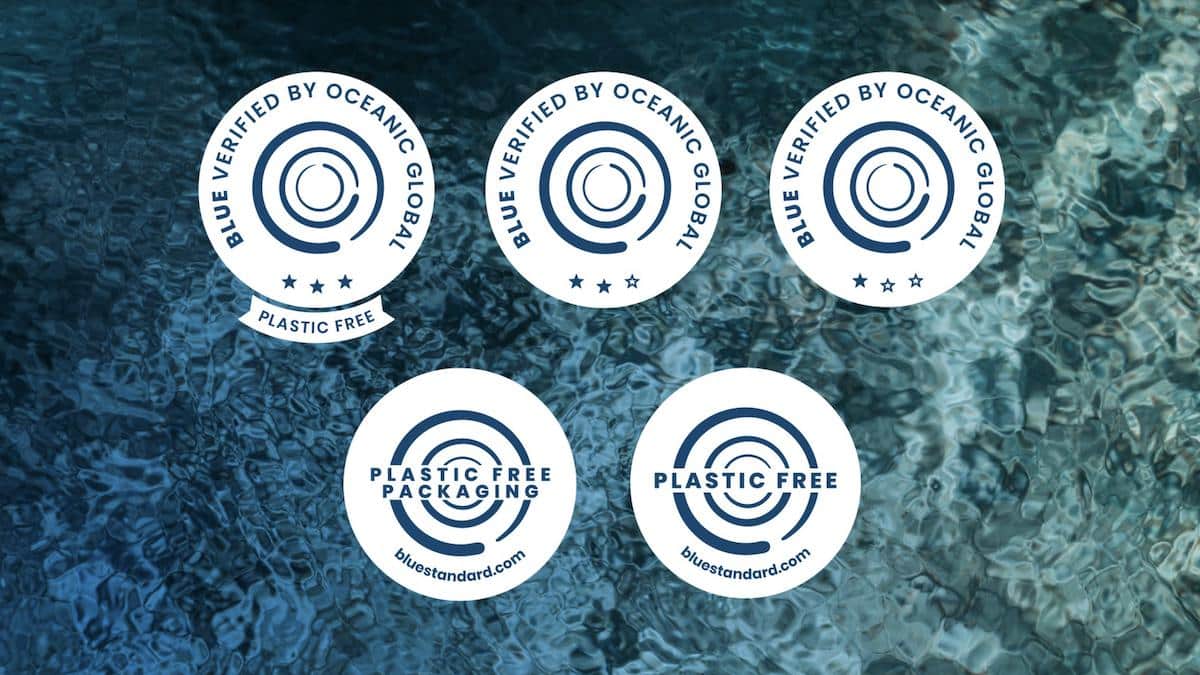
Oceanic Global Launches ‘Blue Standard’ to Create Sustainable Industries for the Ocean

“The infrastructure that makes our lives convenient is depleting that which keeps us alive,” opens a video by Oceanic Global with scenes of plastic bottles and a cut-down forest. “But it doesn’t have to be this way. Balance between industry and nature is possible. Solutions exist. And businesses can be agents of change.”
The mission of the international nonprofit, which helps produce World Ocean Day with the United Nations, is to inspire people to care deeply for the ocean and provide solutions to protect it. Essential to this goal, Oceanic Global empowers individuals, communities and industries to create positive change that benefits all.
Now, Oceanic Global has launched a new program to help drive this change. The Blue Standard, as the program is called, is a cross-industry standard that empowers businesses to become leaders in sustainability and accountability for the ocean and the planet. The two core offerings include (1) a 3-star sustainability verification system for business operations and (2) product and packing seals that verify plastic-free consumer goods, reported Globe Newswire.
Products can be labeled with the Blue Seal if they are plastic free and with the Blue Packaging Seal if their packaging is sustainable and compliant with waste management. Oceanic Global
The Blue Standard was developed together with Oceanic Global’s scientific advisory board and trained experts in both WELL and LEED building rating systems, Globe Newswire reported. Transparency and accountability were the driving motivators.
The framework also creates tools for businesses to better communicate their sustainability initiatives and successes to consumers, who can more easily identify businesses that align with their values. The overarching goal, according to Oceanic Global, is to create a balance between businesses and the natural world — especially the blue planet — and to make it easier and more affordable for businesses to make positive changes.
“Our goal is to engage as many businesses as possible in implementing Blue solutions,” said Oceanic Global founder Lea d’Auriol. “With businesses of all sizes increasingly adopting sustainable practices, we recognized both the need and the potential to create universal accountability for these efforts and for how they’re communicated to consumers.”
The standard, which launched on Oct. 4, improves upon the business operations of many industries, including hotels, restaurants, events, music and sport venues and office spaces, said program director Cassia Patel. There is a strong focus on eliminating single-use plastics and improving waste management, Patel added.
Other operational aspects covered under the Blue Standard include: using non-toxic cleaning supplies, sustainable procurement policies, sustainable food sourcing (local and plant-based), responsible seafood sourcing, energy consumption, responsible travel, and more. Businesses can even submit their own “Innovation Actions” that move beyond the ones set forth in the standard. In all operations, businesses will be urged to lead the way to a more sustainable future by implementing the Blue Standard and living up to its mandate.
The program also includes “open-source” tools and free education for businesses. Oceanic Global created step-by-step, industry-specific guides on how to implement the best sustainable practices for their sectors. These targeted contain operational recommendations and solutions, with a strong focus on reducing single-use plastics and optimizing waste management, Patel explained.
“Our hope is that through empowering comprehensive commitments to sustainability and lasting systems change, The Blue Standard will work to create a new balance between industries and the natural world that sustains them,” d’Auriol told EcoWatch.
Additionally, the Blue Standard also engages individuals and communities through the consumer goods sector. Products themselves, as well as their packaging, are assessed to see if they qualify for a Blue Product or Blue Packaging Seal. Patel explained how considerations for these designations includes plastic-free materials, end-of-life considerations, waste management compatibility, and considerations for material sourcing, such as requiring all paper to be from recycled content, FSC-certified or other local equivalents.
One of the main goals of the new Blue Standard seals is to “help consumers navigate greenwashing to find products that are truly plastic-free,” the introductory video explained.
Patel concluded, “The health of our ocean is at a tipping point as is that of our collective well-being. Blue works to empower tangible action at all levels.”
To learn more about the groundbreaking Blue Standard, register for one of the virtual launch events, happening Oct. 7 at 12 p.m. (noon) EDT and Oct. 8 at 12 a.m. (midnight) EDT.
The Blue Standard by Oceanic Global
youtu.be

 233k
233k  41k
41k  Subscribe
Subscribe 
